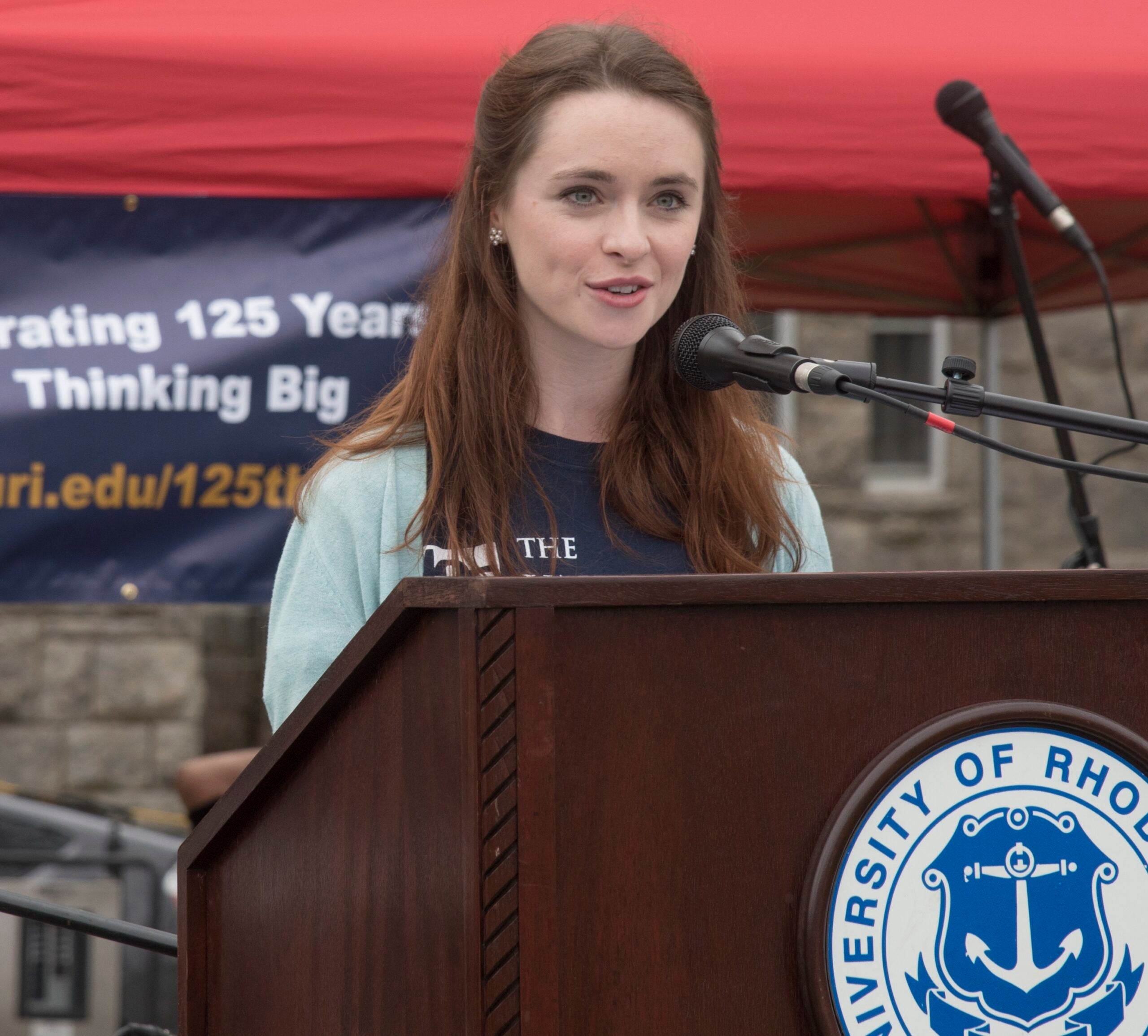KINGSTON, R.I. — April 27, 2017 — Hayley Greene is a 2015 graduate of the University of Rhode Island, but her ties to the University go all the way back to the original Oliver Watson Farm purchased to create a state agricultural school more than 125 years ago.
The sixth-generation descendant of the Oliver Watson family joined URI President David M. Dooley, Professor W. Michael Sullivan, chairman of the Faculty Senate, and Abel G. Collins, vice president of the South Kingstown Town Council today as the University celebrated Founders’ Day on the Kingston Campus as part of the 125th Anniversary of the University. More than 1,000 dignitaries, students, alumni and friends enjoyed hayrides, ice cream, kettle corn, music by Roger Ceresi’s All Starz and other activities on the Quadrangle as they celebrated the purchase of the farm by local residents for a state agricultural school, which decades later became URI.
Greene, a URI Academic Excellence Award recipient who earned undergraduate degrees in elementary education and English, toured the Watson House, the only structure remaining from the farm on the Kingston Campus, for the first time today.
“I always passed by it on my way to classes, but I never went in,” she said after giving one of the keynote speeches. “Standing inside the house today gave me chills. Rhode Island is in my bones. My family has been here since the 1600s.
Now a teacher at the Learning Community, a public charter school in Central Falls, she opened her talk by referencing URI’s beautiful quad and its stately granite buildings.
“Their very permanence and ageless qualities make them seem like they have been here forever, but 125 years ago, this place was very different,” said Greene, who grew up in Wickford.
“Among the crops and livestock, they built their family homestead, once standing in the quiet of rural solitude, but later in the heart of a bustling, sprawling campus. That home still stands today: the Oliver Watson House, the old white Georgian house just down the hill from the library. The austere white house seems strangely out of place in a modern college campus, but it harkens back to the early days of the University as an agricultural school built on the site of a working farm.
“How curious that I, Oliver Watson’s great (times six) granddaughter should return to this very same place to find my success in life, too. I can’t help but wonder if his daughter, Sarah Watson, at my age and pondering her future, could ever imagine that her children’s children’s children would return to her farm, walk in her footsteps, or feel the same biting wind that blows relentlessly up the hill.”
She said Rhode Island farmers were aware of the effects of the Industrial Revolution and the importance of understanding the science of agriculture and its mechanized future.
“In 1888, the Watson family sold their farm to the state for $5,000 to establish Rhode Island’s Agricultural Experiment Station and Agricultural School. Four years later the name became the Rhode Island College of Agriculture and the Mechanic Arts, with a first graduating class of 17 students.”
Greene, who also earned a master of arts in teaching from Brown University, said the Watson House today stands as a museum of early American life and a reminder of the University’s humble roots.
“If they thought about it at all, the Watsons probably hoped they would be remembered for being hard-working farmers or for the quality of their crops or livestock,” Greene said. “They would never know that the real harvest of their beloved farm would be learning, innovation, and an abundant crop of dreams and hopes brought to fruition – year, after year, after year.”
(Photo by Michael Salerno.)

